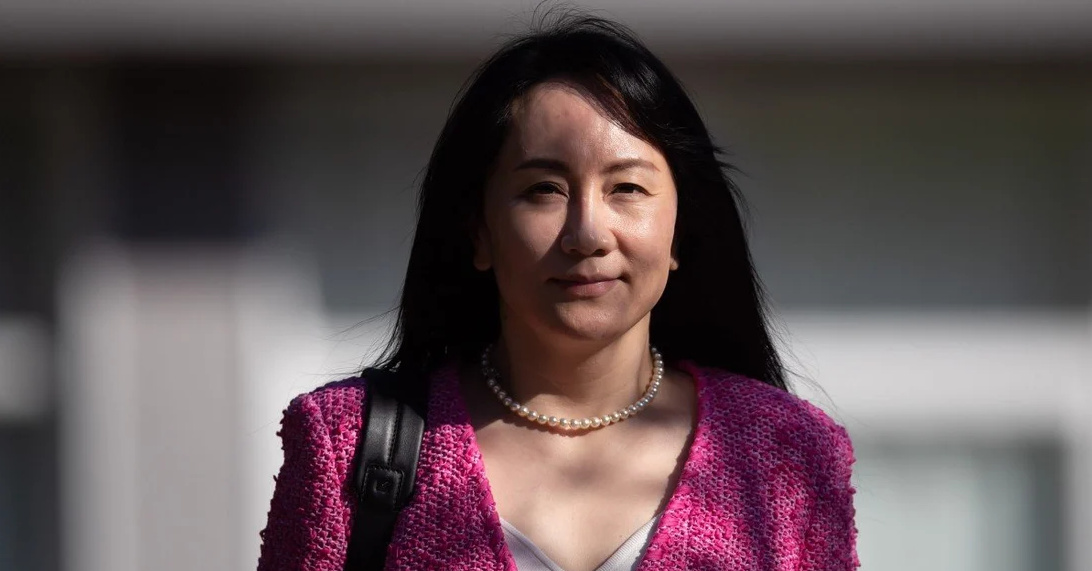Canadians awoke again last week to headlines about the case of Meng Wanzhou, Huawei’s CFO. Since Meng’s arrest in December 2018, the case has been in and out of court. Many people have followed its progress, but others will have lost track of what it is about or think it doesn’t concern them. The highly distressing discoveries of unmarked graves in former residential schools in recent months has rightly led to national introspection and a collective demand for explanations and answers. The Canadian instinct towards equality and fairness will not rest until these are provided. Canadian values are fundamental, intensely felt and fiercely guarded. These two cases are not comparable in scale, but they both lead Canadians to ask what values are important to them, what they stand for, and what happens when those values are challenged.
Meng’s case is simple, despite the impression given by any attempt to follow the arguments and applications being made. The lawyers’ skirmishes involve applications made in satellite cases in England and Hong Kong, witnesses relocating to Macau, allegations against HSBC in South America, business dealings in Iran and allegations of fraud in the United States. Add to this the wealthy individuals involved, multinational companies, media hype and sound bites from Donald Trump, and links to accusations against the two Michaels held in China and we have good ingredients for making a James Bond Movie.
In short, Meng is accused of concealing from HSBC in 2013 that Huawei controlled a company doing business in Iran. The United States wants Canada to send Meng there to be tried. In Canada, the case is all about whether Canada should send her there. That’s it. However, you might be forgiven for thinking the Canadian case is about whether Meng did anything wrong, as we keep hearing about that from her legal team. We might ask, if the case if so simple, why is it constantly in the news? In reality, if the US case was against an individual who ran a small company, the chances are that she would already have been transferred to the US, or, more likely, the case would not have been brought at all. Instead, given the Sino-US trade war, Huawei’s size and high profile, and the fact that Meng resists being sent to the US, the case is highly politicised (Meng is a wife and mother as well as business executive) and put centre stage for the world’s media to consume over breakfast.
Why has the case gone on for so long if this is all it is about? Both Huawei and the Canadian government (Canadian tax-payers) have unlimited resources, which ensures all possible defences are raised; no one has to back down because of the lawyers’ tab. Meng’s defence team has four principal arguments, all of which seek to establish that the proceedings are a ‘breach of process’, that the courts and the system are being abused or misused. The first argument or branch is that the accusations are politically motivated. This allegation is based mainly on former President Trump’s intimations that the charges against Meng may have been dropped as part of a trade deal between the US and China. Secondly, her detention and subsequent arrest were unlawful because of collusion between the RCMP and CBSA back in December 2018. This alone can be sufficient for the court to throw out the case, as a way of discouraging rule-bending by authorities who act outside the law. The third branch is that key evidence provided by the US is unreliable and misleading. The government says all of these third branch arguments should be made in the US when the facts are tried, not in Canada. The fourth branch is that the US attempt to exercise jurisdiction over Meng’s actions that took place in Hong Kong, just because a dollar transaction subsequently followed, is a breach of international law. This is the ‘none of your business’ argument that countries should not interfere with other countries’ sovereignty. The lawyers have effectively characterised all of their arguments as fitting into one of these four branches.
These points have taken almost three years to play out, and all will come to a head in August 2021, when the court makes a final decision. If the court decides to extradite, then it goes to the desk of the Canadian minister, who has the power to decide against it.
How is this connected to Canadian values? The case has been interesting (at least to me) in that it has provided a behind the scenes look at some common practices and features of the extradition process that usually take place behind closed doors. It has shown us how banks operate, make deals with governments to avoid prosecution (called ‘deferred prosecution’) in return for helping build ‘cases’ against other suspects or opponents. It has revealed collusion and rule-bending by government agencies that are commonly unchecked because most people don’t have the time or resources to prove what they suspect. It shows that governments will misrepresent evidence to pin an allegation on someone, despite strong evidence pointing the other way, which is ignored. It shows the tenuous nature of the United States’ attempts to police the world by claiming a connection where US dollars are used in a transaction.
Individuals typically lack the resources to stand up to such practices, they rely on their courts and their governments to do it for them. This is why there is such a feeling of anger and injustice when governments and the system turn out to be the perpetrators or conspirators in removing the very rights they are supposed to protect. Meng’s case has done a public service for which we should be thankful and from which we should learn. Parts of the system lose efficiency, go wrong, cause harm, and this might be expected over time. We must, however, be able to shine a light on these areas, and what we do or do not do at that point is what makes us accountable.
Whether people can identify with Meng’s case is not the issue. We might not understand her life, her motives, what is important to her or to her country. But this is a Canadian trial, a Canadian process and a Canadian judge, a test of Canada’s fairness and accountability. Canadians have more at stake in this case than they might think. Supporting fairness and accountability is always essential, and opportunities to identify parts of the system that have gone wrong, that need to be changed, do not happen often. Not only can you lose the chance to make the change, but you also encourage the wrongdoing and make the task of changing more difficult the next time the opportunity presents itself.
Author:
Sean D. Yates
Qualified English lawyer with twenty-five years’ experience, and fifteen in the U.A.E. Currently General Counsel for China State Construction Engineering Corporation (Middle East) L.L.C., a regional subsidiary of the Chinese State-owned contracting company. Specialist expertise in a range of complex construction, real estate investment and development matters. Expertise also includes dispute management having practised as an independent barrister for ten years in the United Kingdom before relocating to Dubai in January 2006.
The opinions expressed in this article are those of the authors and do not reflect the opinions of InHouse Community Ltd, or it’s employees.



